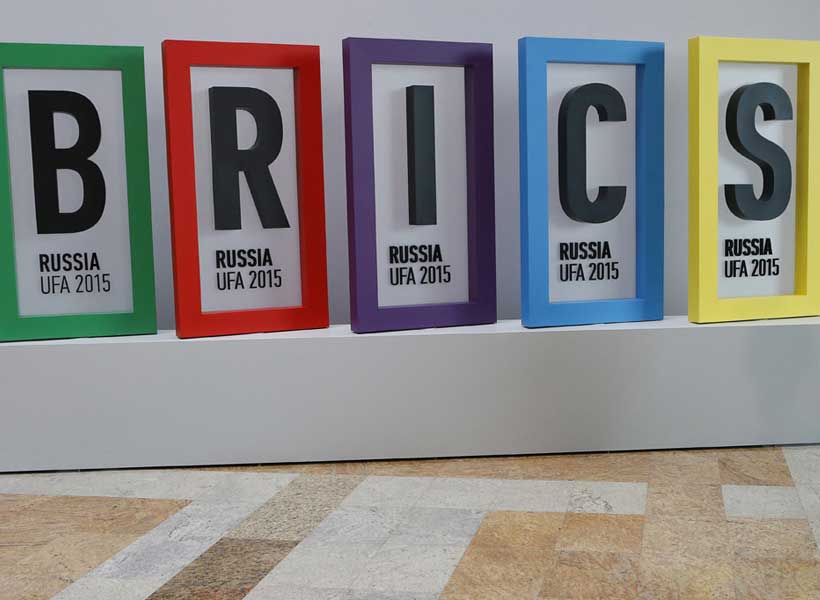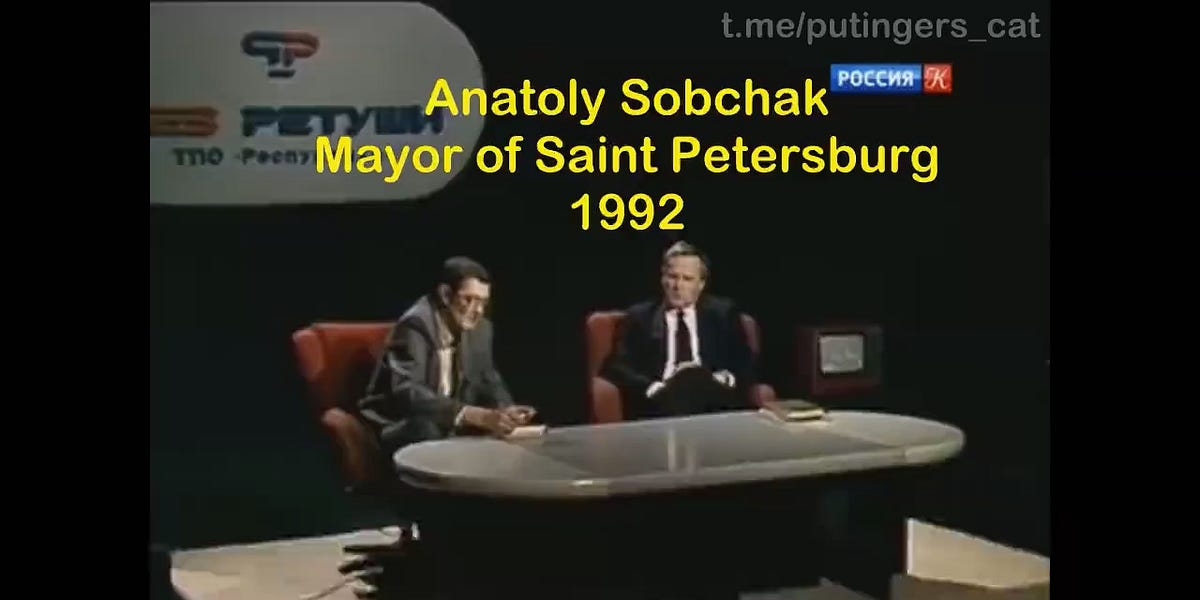St.

simplicius76.substack.com
Prophetic 1992 Interview with Putin Mentor Anatoly Sobchak Predicts Existential Clash
 SIMPLICIUS THE THINKER
SIMPLICIUS THE THINKER
2 MAY 2023
St. Petersburg’s first mayor and Putin mentor Anatoly Sobchak gives a sobering and darkly prophetic interview where he correctly outlines not only the injustice of Ukraine filching the land given to it by Russia after splitting from the USSR, but how Ukraine will now become a ‘time bomb’ as it arms itself for a future clash that would endanger mankind itself.
This is particularly interesting to me because I’ve mentioned several times before how people close to the geopolitical situation in the 90s and 2000s all predicted today’s events. Others who had only begun following the situation in recent years erroneously believed that the Ukraine situation had only begun to inflame after the various revolutions of the 2000s. For instance, the Orange Revolution of 2004-2005, and even the Georgian Rose Revolution of 2003, which was linked in a general way.
But in actuality, the tensions and hostilities between Ukraine and Russia can be traced back to right after the dissolution of the Soviet Union. Of course, most of us know that the tensions can
really be traced back even much further: to the
CIA Project Aerodynamic, for instance, which first began to establish radical nationalist enclave movements in western Ukraine, akin to the GLADIO network. (
Here’s the paperwork on it from their own site)
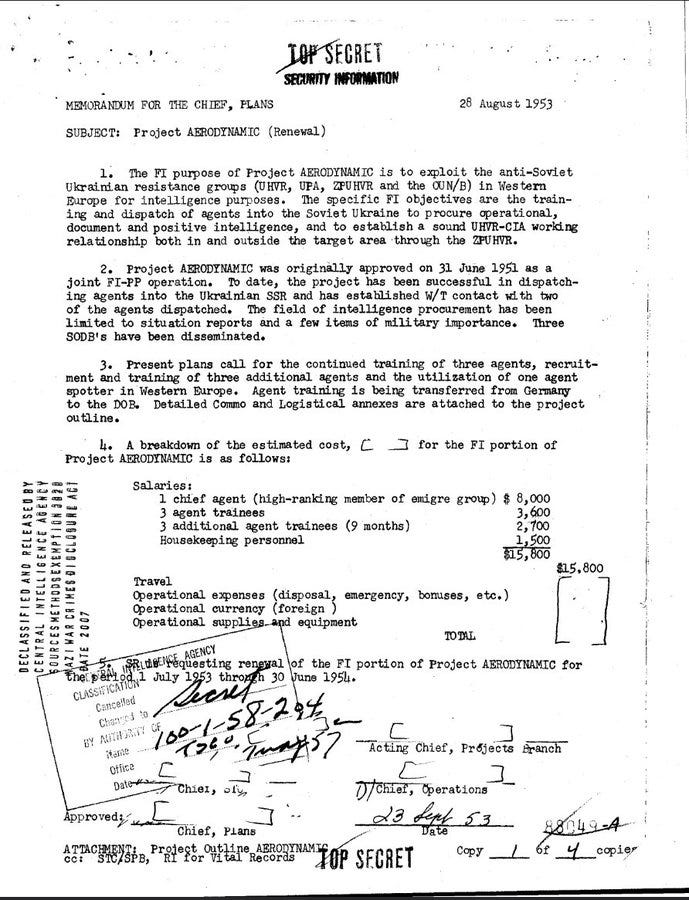
But it really spun into overdrive in the ‘90s, particularly after Western NGOs and Soros money began to pour in.
In the video at the top, I’ve included several other clips showing some of the Western/intel involvements in Ukraine dating to the ‘40s and ‘70s; I’d advise you all to watch its entirety. The fact is, people on both sides of the aisle knew this. So when the fraudulent Belovezha Accords were signed in ‘91, shrewd Russians could intuit that it was only a matter of time until Ukraine’s ultra-nationalism uncloaked itself from the shadows and came to the forefront to begin agitating in provocateur fashion against Russia.
This can be seen not only from a wealth of videos and offhand statements from officials at that time, but even in popular culture. For instance, one of Russia’s most popular films, 1997’s
Brat (‘Brother’), featured a plotline with ex-Russian soldiers chased by Ukrainian ultra-nationalist mobsters who repeatedly flaunted their hatred of ‘Moskals’, while the Russian characters, in turn, hurled insults at them like ‘Nazi’ and ‘Banderite’.
This is why by the late 1990s, politicians like Zhirinovsky were already well attuned to the inevitability of circumstances. Included in the top video is another prophetic tirade of his given in a 1999 Council of Europe appearance, where he, with trademark stentorian bravura, exclaims that there will be a war for Crimea, the Balkans, Abkhazia, etc., in the near future.
He correctly invokes the U.S. empire’s chief strategy: perpetual balkanization. First you break up the USSR into its constituent parts; then you break up even those parts into smaller pieces. You continue on ad infinitum until nothing is left but powerless irredenta and rump-states run by warlords who are easily bribed, blackmailed, or killed for ultimate control. Pitting Ukraine against Russia in order to break up the critical Sevastopol port control was part of this strategy.

But back to Sobchak; he too was right. Ukraine thanklessly took the land graciously granted them by Russia, squatted on it for decades while enjoying Russian subsidization, then unceremoniously tore up the paperwork and left, taking the historically Russian lands with it.
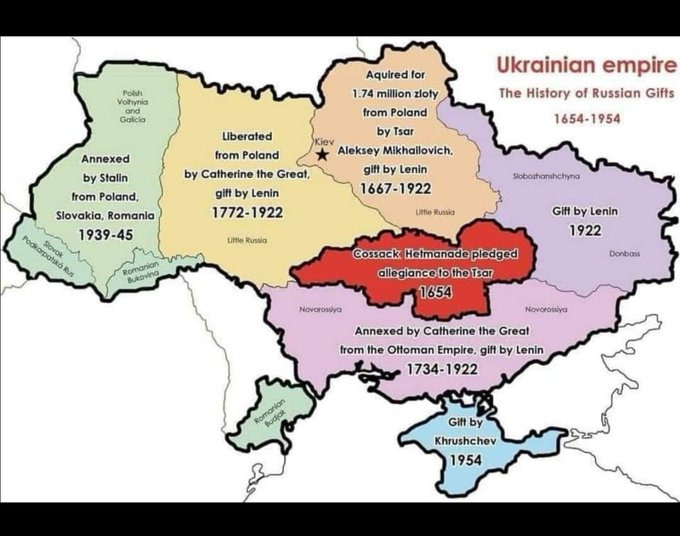

Here’s an example of what I mean. These charts show each SSR country’s input vs. output into the USSR in terms of their consumption vs. production; in short, it shows which ones carried their own weight, and which were subsidized by ‘mother’ Russia.

Note how, as the ‘80s wore on, Russia’s ratio of production over consumption grew more and more net positive into surplus, while other countries grew the opposite direction; meaning, Russia was subsidizing them with increasingly greater disparity.
Ukraine wasn’t the worst offender by a long shot, but it was still in the red, which means it was suckling at the Russian teat without giving anything back. Even Belarus was in the surplus—the only one, in fact.
Another look at just 1990, with the balances more clearly shown:
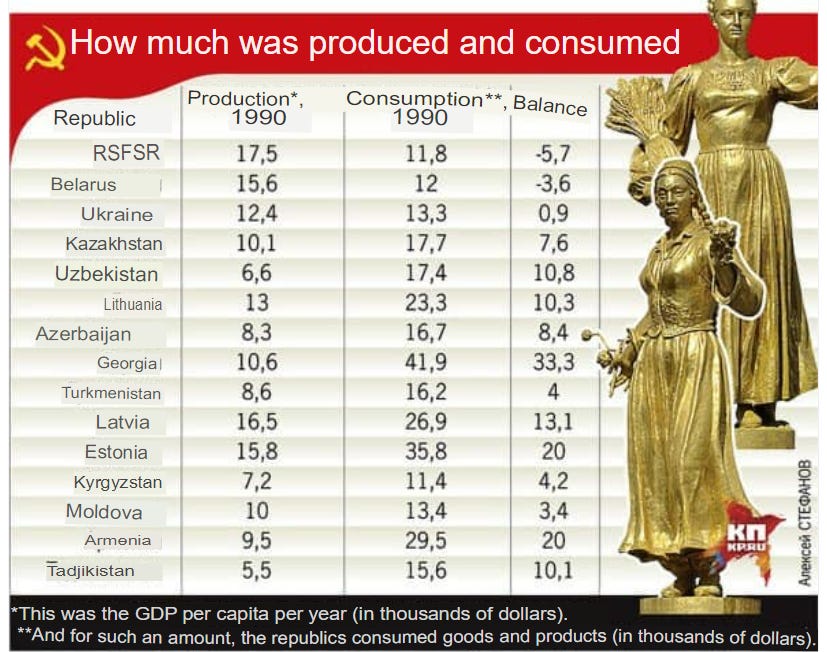
The most foreboding part of Sobchak’s statement, though, was his foresight into not just the inevitable military clash that would happen were Ukraine allowed to build an army, but uniquely, he alone foresaw the existential quality of this looming danger. Even Zhirinovsky didn’t characterize his admonishments by invoking a danger ‘
to all mankind’, as Sobchak did.
With that said, it should be obligatory to mention that the results of a people’s referendum on the breakup of the USSR in early 1991 were not honored:
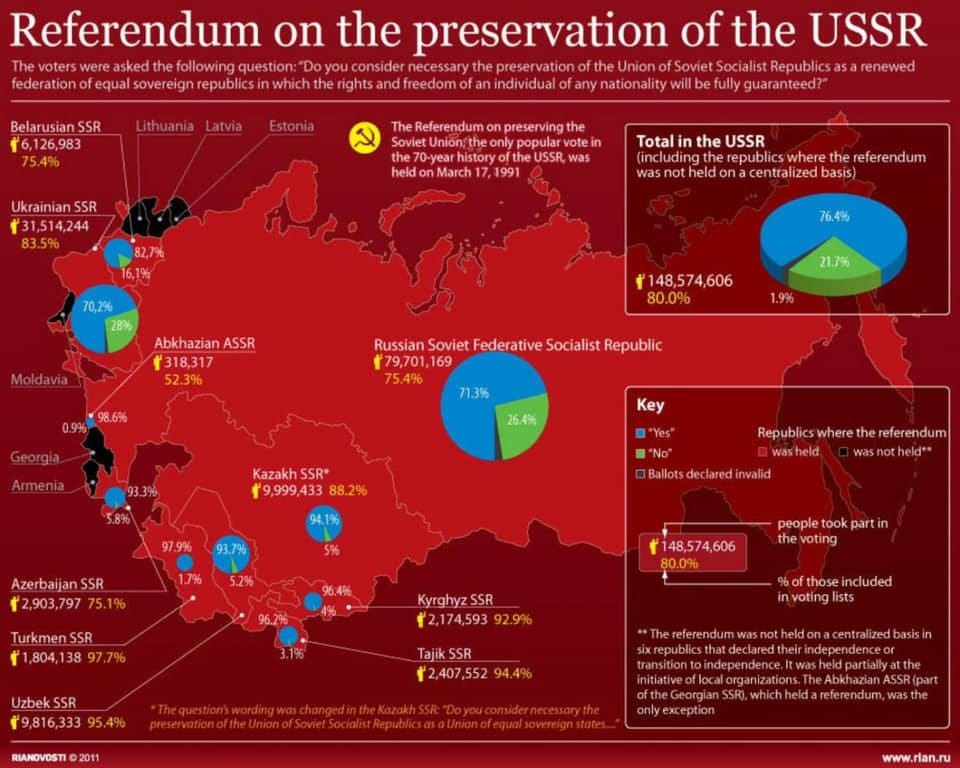
“The referendum on preserving the Soviet Union, the only popular vote in the 70-year history of the USSR, was held on March 17, 1991.”
La última ironía: los ucranianos votaron con un porcentaje casi idéntico al de los rusos (70-71%) para preservar la URSS; pero el referéndum fue ignorado. Ahora, este ha sido un choque existencial en el futuro. Pero todo podría haberse evitado si solo se hubiera respetado el voto democrático y se hubiera preservado la URSS.
Este es el procedimiento operativo estándar para los globalistas antidemocráticos y fascistas. No honran ningún referéndum hasta que siguen su camino:

Una ironía aún mayor: las próximas repúblicas 'independientes' de la URSS probaron por primera vez la llamada 'democracia' occidental fue, de hecho, un engaño fraudulento, que marcó la pauta para un futuro plagado de intervenciones occidentales. y revoluciones de color.




